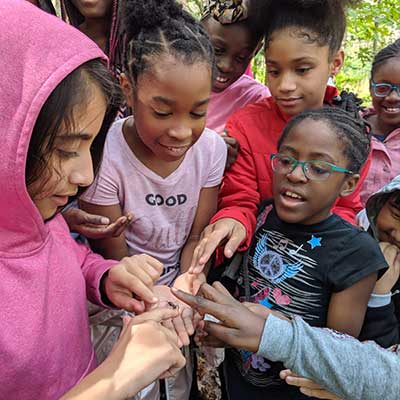
Our experienced team of environmental educators are ready to be a resource for both teachers and students to experience nature in new and exciting ways. Our programs are designed to align with current NYS learning standards. Whether learning about the life cycles of plants and animals, investigating ecosystems or studying adaptations, our educators provide opportunities for students to have direct experiences with the living environment while introducing complex scientific concepts with interactive inquiry-based curriculum.
Take a Field Trip
to Baltimore Woods
Experience nature up close
and outside at Baltimore Woods!
Please email School Programs Manager Katie at [email protected] with your inquiry.
Baltimore Woods Nature Center is bringing you new opportunities for your students to enjoy field trips!
During the school year (September-June), in-person field trips are currently only offered on Mondays, Wednesdays, and Fridays. We have limited availability on Tuesday and Thursday mornings. Morning sessions can begin at 9:30 or 10:00 and afternoon sessions can be scheduled for starting at 12:30 or 1:00.
The education staff at Baltimore Woods has designed a variety of interactive and hands-on nature experiences for students. Check out our field trip options below:
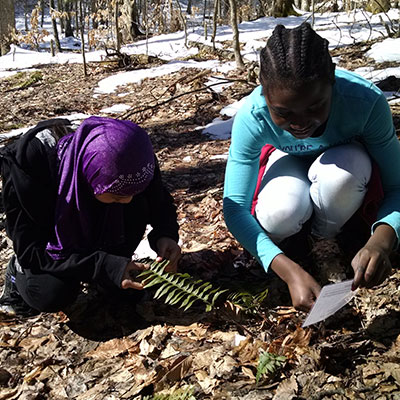
Seasonal Ecosystem Tour
Available in fall, winter, and spring
Recommended for Pre-K & up
1 hour
Capacity: 4 classes
Join us for a hike through various ecosystems here at Baltimore Woods as we explore what makes them unique. How many ecosystems do you think we have here at Baltimore Woods? We will play games and engage in activities to learn about the plants and animals that call these places home and the adaptations they have to help them survive throughout the seasons.
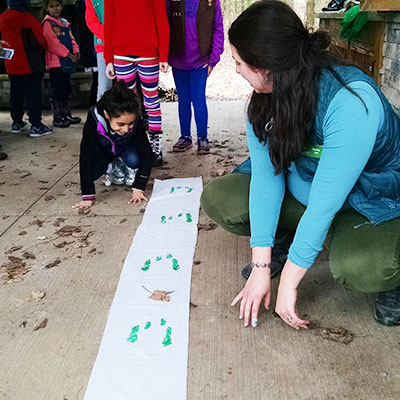
CSI: Baltimore Woods
Available in fall, winter, and spring
Recommended for 3rd grade & up
2 hours
Capacity: 4 classes
There is a lot of activity going on at Baltimore Woods and we need your help to solve some mysteries! Students will learn about trace evidence, tracking, and how to identify animal skulls and what those animals eat by looking at their teeth. Did you know you can tell if an animal is predator or prey based on where their eyes are located? They’ll then investigate animal crime scenes and put their training to the test! Will they figure out who ate who?
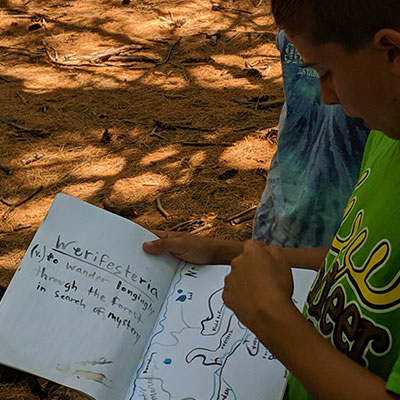
Nature Journaling
Available in fall, winter, and spring
Recommended for 2nd grade & up
1 hour
Capacity: 3 classes
Looking for a unique way to inspire creativity and connect students with the natural world? This immersive experience invites students to slow down, observe closely and express themselves through writing, drawing and listening while exploring special places at Baltimore Woods. Whether sketching a leaf or writing a reflection, nature journaling helps students tune into their surroundings and form lifelong connections to their environment. You may bring your own journals or they can be provided by Baltimore Woods for a small fee.
Note: Want to extend your field trip experience? We can recommend a compatible program or tailor the program to a specific topic, like ecosystems or food chains!
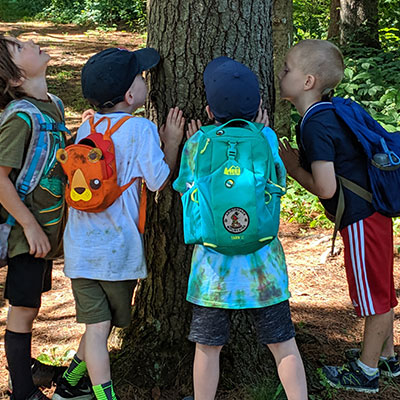
Sensing Nature
Available in fall and spring
Recommended for K-2
1 hour
Capacity: 4 classes
Our senses can tell us so much about the world around us! Students will embark on a fun-filled adventure through the forest where they’ll explore the sights, sounds, textures, smells and even tastes of nature. Along the way, they will learn about their 5 senses and discover how both humans and local animals use them every day to navigate, find food, and survive. Join us for an exciting way to connect with nature through our senses!
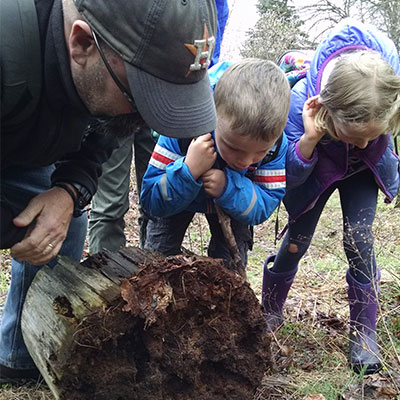
Habitat Hunt
Available in fall, winter, and spring
Suitable for K-2
1 hour
Capacity: 4 classes
There are so many different habitats to discover at Baltimore Woods! We’ll learn about various local animals and the specific places they call home. Students will investigate various habitats to find all of the things animals need to survive out in nature.
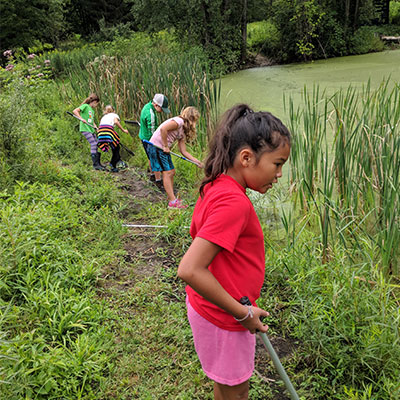
Pond and Stream Ecology
Available in May and June
Recommended for 3rd grade and up
2 hours
Capacity: 2 classes
Join us for an in depth investigation into the life of a pond and stream! This 2.5 hour program invites young scientists to explore aquatic habitats, animal adaptations and discover what those animals can tell us about water quality and health of each ecosystem. Students will use nets to study what lives in the water and see the creatures up close!
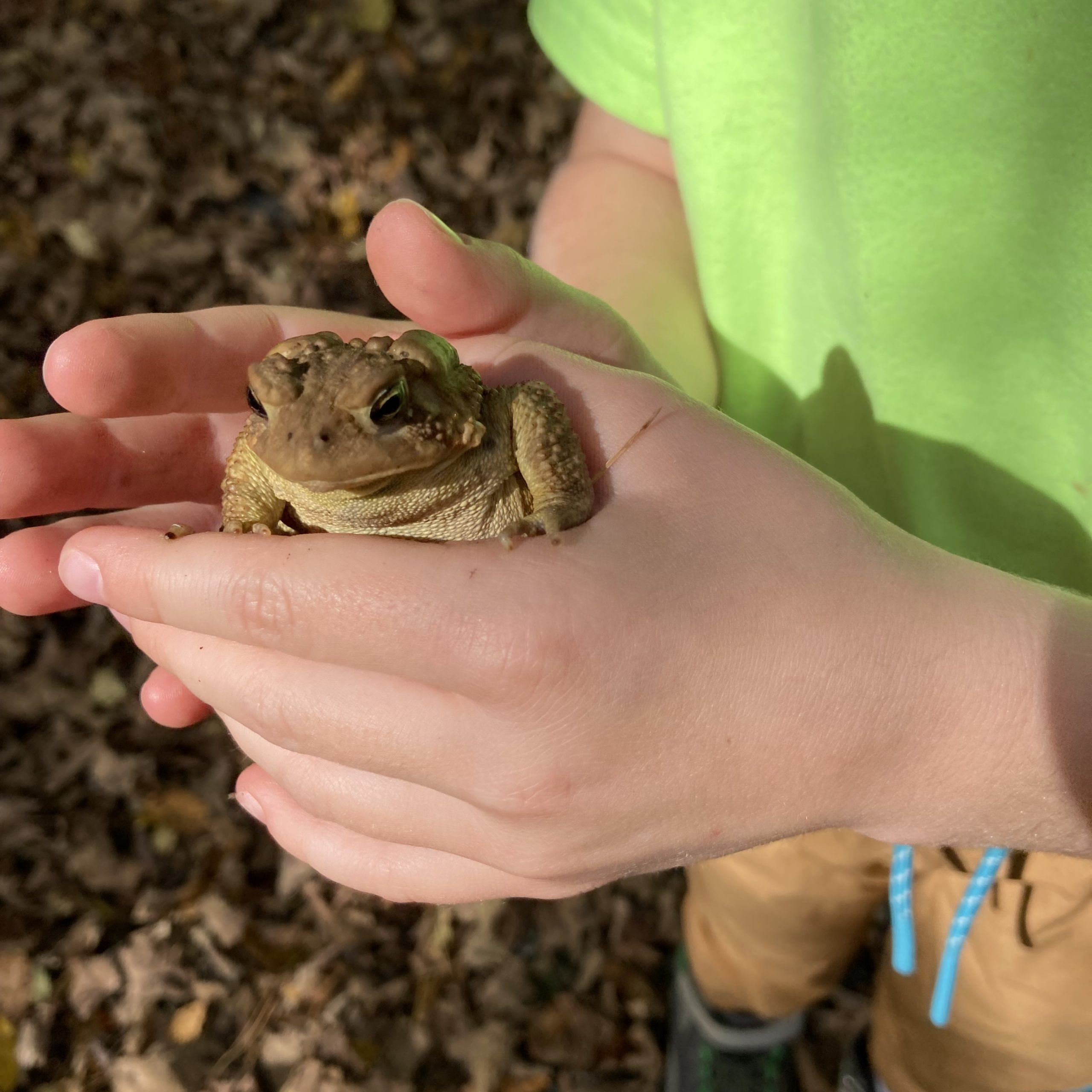
Ribbiting Transformations
Available in spring
Recommended for grades K-2
1 hour
Capacity: 1 Class
Join us for an in-depth investigation into the life of a pond. We’ll explore the life cycle of frogs and discover how these amphibians grow from tiny eggs to tadpoles and eventually into adult frogs. Students will use nets to study what lives under the water and observe the stages of metamorphosis firsthand. Along the way, we'll also encounter other pond dwelling creatures and learn about the unique adaptations that help them survive!
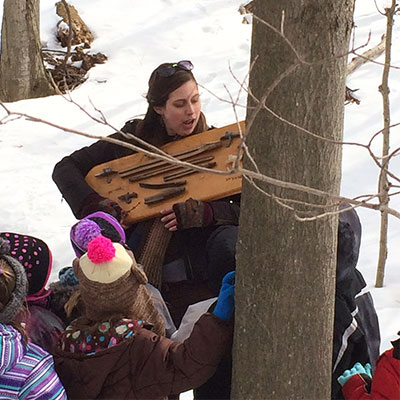
Maple Magic
Available in March only
Recommended for K and up
1.5 hours
Capacity: 2 classes. 4 classes, if paired with another compatible program, like Nature Journaling.
Ever wonder where that golden, sticky syrup on your pancakes comes from? Join us for an adventure into the fascinating world of maple syrup! Students will learn about the wonders of the Sugar Maple- from its life cycle, to the tapping process that collects sap, to watching the process of transforming sap into one of nature's sweetest treats!
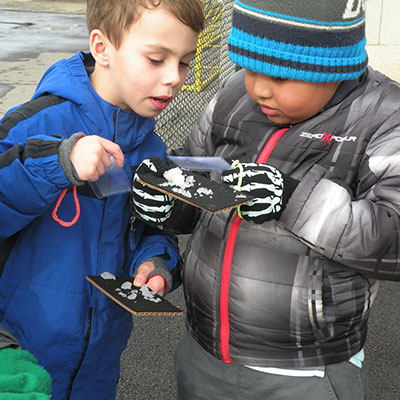
Wonders of Winter Water
Available in winter
Recommended for 2nd grade and up
1 hour
Capacity: 2 classes
Students will discover how water transforms in the winter! Along the way, they'll learn about Wilson "Snowflake" Bentley, the first person to photograph snowflakes in the late 1800s. Through close observation and hands-on activities, students will uncover what makes snowflakes unique and explore the many forms water takes during the winter season.
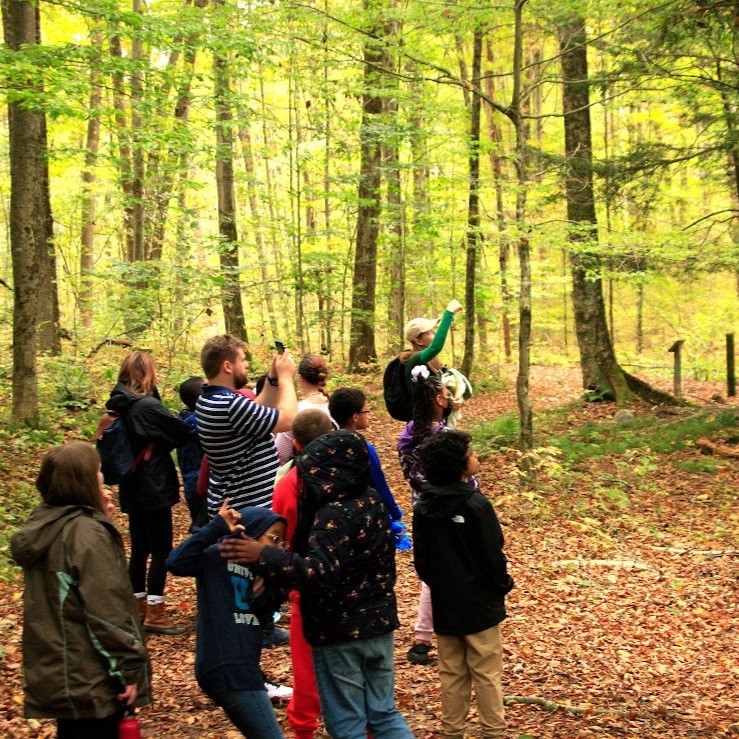
Engines of Change
Available in fall and spring
Recommended for 5th grade and up
2 hours
Capacity: 3 classes
Join us for a hands-on, nature-based exploration where students will discover how both beavers and humans act as "engines of change" in the landscape. Through games, a guided hike, and discovery-based activities, students will learn how disturbances, both natural and human-made, affect habitats and ecosystems.

